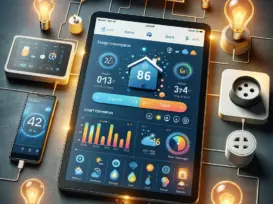Grus Home Energy - energy efficient homes
Creating Energy Efficient Homes: A Guide to Lowering Your Carbon Footprint
Energy efficient homes are becoming increasingly popular as people seek to reduce their carbon footprint and lower their utility bills. By making simple adjustments to your home, you can significantly decrease your energy consumption and contribute to a more sustainable environment. Here are some tips on how to create an energy efficient home:
1. Insulation and Sealing
One of the most important factors in creating an energy efficient home is proper insulation and sealing. By insulating your walls, attic, and floors, you can prevent heat loss in the winter and keep your home cool in the summer. Additionally, sealing up any drafts around windows, doors, and other openings will help maintain a consistent temperature inside your home.
2. Energy-Efficient Appliances
Another way to reduce energy consumption in your home is by investing in energy-efficient appliances. Look for appliances with the ENERGY STAR label, which indicates that they meet certain energy efficiency standards set by the Environmental Protection Agency. These appliances use less electricity and water, resulting in lower utility bills and reduced energy usage.
3. LED Lighting
Switching to LED lighting is a simple and cost-effective way to make your home more energy efficient. LED bulbs use significantly less energy than traditional incandescent bulbs and can last up to 25 times longer. By replacing your old light bulbs with LEDs, you can lower your electricity usage and reduce your carbon footprint.
4. Solar Panels
Installing solar panels on your roof is a more substantial investment, but it can greatly reduce your reliance on fossil fuels and lower your energy bills in the long run. Solar panels harness the power of the sun to generate electricity, providing a clean and renewable source of energy for your home. Many governments offer incentives and rebates for installing solar panels, making it a financially viable option for many homeowners.
5. Smart Thermostats
Smart thermostats are another innovative way to make your home more energy efficient. These devices allow you to control your heating and cooling systems remotely, so you can adjust the temperature in your home based on your schedule and preferences. By optimizing your HVAC system, you can reduce energy waste and save money on heating and cooling costs.
Overall, creating an energy efficient home is an achievable goal that can benefit both the environment and your wallet. By implementing these tips and making small changes to your home, you can significantly reduce your energy consumption and contribute to a more sustainable future.
Blog, Energy Savings & Cost Reduction , May 17, 2024 , efficiency housing, Electricity bill, energy audit, energy conservation techniques, Energy Consumption, energy efficient home designs, energy efficient homes, energy saving tips, home automations, home energy audit, Smart Home Automation, Smart Home Energy Management, Smart Home Security Systems
©2025 All Rights Reserved. Grus IoT Co.,Ltd.
